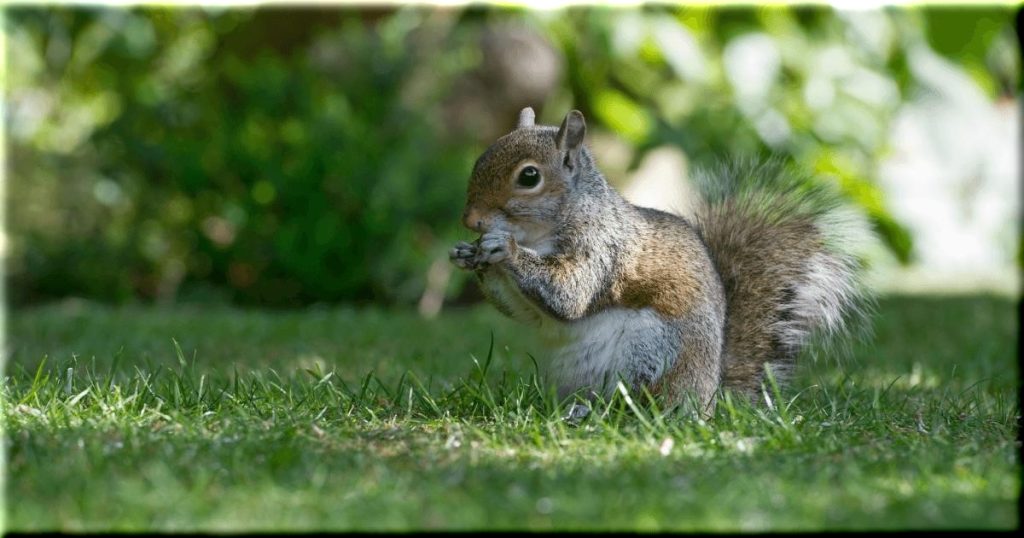Garden
How to Get Squirrels Out of Your Garden: Understanding Squirrel Behavior and Effective Prevention Methods
Squirrels can be charming creatures, but their love for gardens can quickly turn into a frustrating problem. They can decimate your carefully planted vegetables, fruits, and even flowers, leaving you wondering how to protect your hard work. Understanding their behavior and implementing effective prevention strategies can help you enjoy your garden without the unwelcome presence of these furry friends. Let’s explore the key aspects of keeping squirrels out of your garden.
Understanding Squirrel Behavior in the Garden
Squirrels are attracted to gardens for several reasons, making them persistent visitors. They are natural foragers, drawn to the abundance of food sources like seeds, fruits, and vegetables. Additionally, squirrels are adept at burrowing, seeking out freshly dug soil to hide food or create nests. This behavior often results in damage to your plants and flower beds. Furthermore, squirrels often find shelter and nesting opportunities in trees, shrubs, or even structures within your garden. This makes your garden a desirable habitat, making it challenging to keep them out completely.
Effective Methods to Prevent Squirrel Damage
The most effective approach to deterring squirrels is to create a garden environment that is less inviting to them. This can be achieved through several techniques:
Exclusion:
The most reliable method for preventing squirrels from reaching your plants is to create barriers that effectively exclude them. Chicken wire cages, designed to encircle individual plants, are a great way to protect vulnerable crops. Consider purchasing squirrel-proof bird feeders, as these are specifically designed to prevent squirrels from accessing the food source. Furthermore, secure any access points that squirrels might use to enter your garden. This includes sealing holes in fences, trees, or structures that could provide entry points.
Repellents and Deterrents:
Natural repellents can be an effective way to discourage squirrels without harming them or the environment. Garlic spray, with its strong pungent aroma, can be an effective deterrent. Similarly, hot pepper spray, irritating to squirrels’ noses, can act as a repellent. Even human hair, with its unpleasant scent, can be an effective natural deterrent.
Scare tactics can be a short-term solution, but they are often not a long-term fix. Motion-activated sprinklers can startle squirrels with water spray, deterring them from returning. Shiny objects that reflect light can also be placed around your garden to create a visual deterrent. Predator decoys, such as owls, hawks, or snakes, can be used to create the illusion of danger.
Strategic Planting
Consider choosing plants that are less appealing to squirrels. Sour cherries, with their tart flavor, are often less desirable than sweet varieties. Currants, with their strong scent and less desirable taste, also tend to be avoided by squirrels. Growing herbs with strong flavors and aromas, like rosemary or lavender, can also be helpful.
Another strategy is to grow more than you need. This allows you to share a portion of your harvest with the squirrels, ensuring that some of your produce is still protected. This can help reduce their desire to damage your plants.
Living in Harmony with Squirrels
While it is important to protect your garden from squirrel damage, remember that squirrels play an important role in the ecosystem. They help to spread seeds, control populations of insects, and provide food for predators. By creating a balanced garden that accommodates both humans and squirrels, you can enjoy the presence of wildlife while minimizing potential conflicts.
Frequently Asked Questions
What are the most common signs of squirrels in my garden?
Squirrels often leave behind clear signs of their presence, including gnawed branches, dug-up soil, and missing or damaged fruits and vegetables. You may also see them in the trees, shrubs, or structures within your garden.
Are squirrels dangerous to humans?
While squirrels are generally harmless, they can be aggressive if they feel threatened. If you encounter a squirrel, it is best to avoid direct contact and keep a safe distance. If you have concerns about a particular squirrel, contact your local animal control agency for advice.
What can I do about squirrels digging up my flower beds?
You can try using repellents, deterrents, or create physical barriers around your flower beds to prevent squirrels from digging. Consider using chicken wire or wire mesh to create a protective barrier around your plants.
Are there any homemade squirrel repellents?
Yes, there are many homemade squirrel repellents that you can try. Garlic spray, hot pepper spray, and even a mixture of human hair and water can be effective.
Are there any professional services for squirrel control?
Yes, several professional services specialize in squirrel control. They can use methods such as trapping, relocation, or exclusion to remove squirrels from your property.
Conclusion
Remember, keeping squirrels out of your garden is an ongoing process. By understanding squirrel behavior and implementing effective preventative measures, you can enjoy a thriving garden that is both beautiful and productive. Goodxtop encourages you to leave a comment below and share your experiences, tips, and questions. You can also explore more content on our website for further guidance and inspiration.


